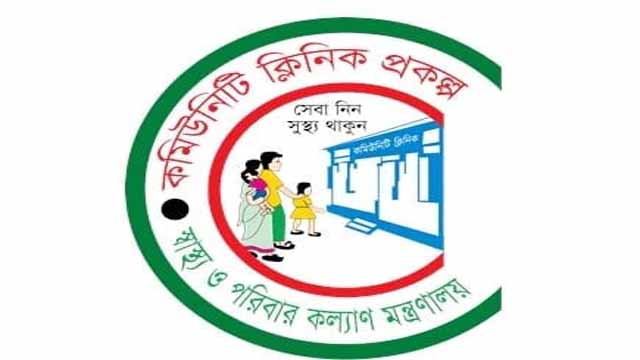
Drugs for hypertension, diabetes now available at community clinics
Published:
১৯ ডিসেম্বর ২০২৩, ১৯:৫৭

Prime Minister Sheikh Hasina's brainchild "Community Clinic" has already gained world repute beyond the boundary of Bangladesh.
Earlier, this community based clinics used to provide 30 types of free medicines to people in rural remote areas but recently medicines for high blood pressure and diabetes have been added to the drug list in four upazilas initially under a pilot project, reports BSS.
To reduce the burden of non-communicable diseases on the health sector and to take into account the needs of the people, the government has added drugs for hypertension and diabetes to the list of drugs in community clinics.
Prime Minister Sheikh Hasina launched this unique community clinic-based health system in Bangladesh in 1998 aiming at bringing all the countrymen under primary healthcare, which made a revolution by reaching the government's primary healthcare at the doorsteps of grassroots people.
Under a pilot project, 86 community clinics of 4 upazilas (Golapganj, Fenchuganj, Bishwanath and Beanibazar) of Sylhet district have recently been provided with hypertension medicines.
These medicines will be available free of cost in every community clinic in the country from next year.
Officially, it will take some time to launch this programme in community clinics across the country, said Md Quiume Talukder, line director of Community Based Health Care (CBHC) under Health and Family Welfare Ministry.
He said the premier always wants that the medicines of community clinics should be given to patients properly.
On June 25 last, a decision has been taken in principle to add hypertension and diabetes drugs to the drug list of community clinics, he said, adding necessary documents have already been sent to the ministry concerned as tender will be issued soon after getting the approval from the ministry.
The implementation of this programme will begin in the current financial year, he said.
The matter has already been informed to the state-owned drug manufacturing company Essential Drugs Company Limited (EDCL), he added.
After completing the tender related work, EDCL will go for drug production once the order is placed.
There are 14,250 community clinics operating across the country now and from there the patients will get the medicine, he added.
Deputy General Manager (Sales and Marketing) of EDCL Zakir Hossain said it will be possible to ensure the availability of high blood pressure medicine from all community clinics in the next financial year.
On May 14, in the meeting of the committee to update the list of drugs used in the community clinic, a decision was taken to supply the drugs Amlodipine 5 mg for high blood pressure and Metformin 500 mg for diabetes.
The meeting also recommended imparting training to Community Health Care Providers (CHCP) on how to inject insulin in the treatment of diabetes in the presence of a registered physician.
Welcoming this initiative of the government to combat non-communicable diseases, experts say that if this program is extended nationwide, it will be possible to reduce the prevalence of high blood pressure and diabetes to a larger extent.
Illness and death caused by high blood pressure and uncontrolled blood sugar will be reduced as well as the medical expenses of the government will decrease in these areas, according to experts.
A 2022 survey conducted by the government's Non-Communicable Disease Control Program said 24.2 percent of the country's population is suffering from high blood pressure as one in every 4 people aged 18 to 70 years is exposed to high blood pressure.
A total of 15.30 lakh fresh adults are being diagnosed with high blood pressure every year. Most alarmingly, 45 percent of patients with high blood pressure are out of control.
High blood pressure multiplies the risk of cardiovascular (heart) diseases, brain stroke and kidney diseases as well as death.
Since 2018, the non-communicable disease control program (NCDC) and the National Heart Foundation of Bangladesh (NHFB) have been jointly implementing hypertension control programs in collaboration with Resolve To Save Lives (RTSL), a global public health non-profit organization.
It aims to strengthen the diagnosis, treatment and follow-up treatment in hypertension in primary health care centers.
The programme is being successfully conducted in 182 upazila health complexes in 23 districts of the country, which provide services for high blood pressure patients in accordance with World Health Organisation (WHO)'s Hearts technical package.
Studies show that spending Taka 1 on high blood pressure tests and medicines to combat non-communicable diseases has an overall benefit of Taka 18.
Noting that things are not like that if one goes to the community clinic, he or she will get these medicines, Dr Quiume Talukder said medicines will be available at the community clinics but conditions will be applicable. CHCPs can't just provide medicines to anyone, he said.
At first, the patient has to consult with physicians of NCD corner of Upazila Health Complex, he said.
If the physician thinks the patient needs medication and mentions it in the prescription, the CHCPs will provide medicines as per the prescription, he said.



Comment: